Need a water test? Call Acorn Environment Services Ltd
Get started
Get a free quote from the water hygeine team"*" indicates required fields
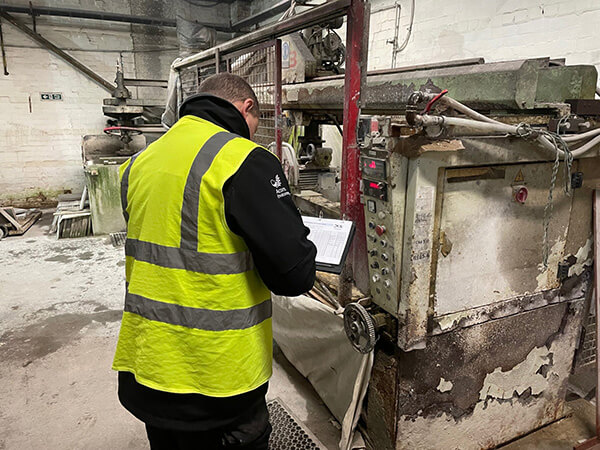

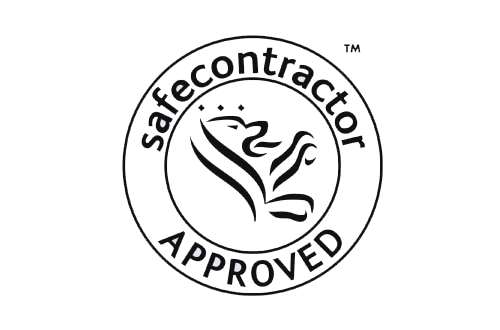
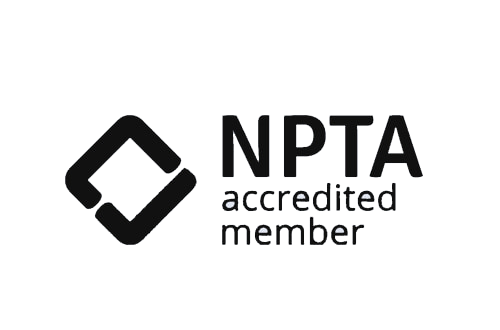

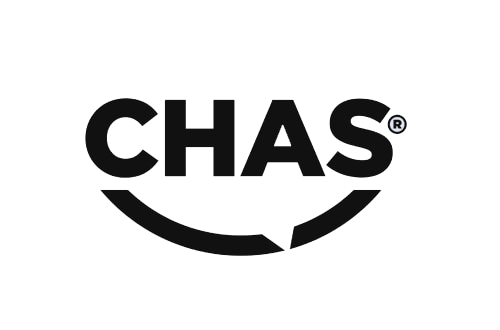
When we turn on the tap to fill a glass with water, many of us don’t give a second thought to the journey that water took to reach us. But have you ever wondered about the quality of water you drink daily? Whether you rely on a mains water supply or a private water source, the quality of water you drink plays a pivotal role in maintaining your health and well-being.
Here at Acorn, we have decades of experience in the water hygiene industry, so we understand what it takes to have safe drinking water. Just as our roads, bridges, and buildings age with time, so does the infrastructure that delivers water to our homes and businesses. This can sometimes pose risks to water quality, allowing different types of contaminants to enter our water systems.
For every home and business owner, this process is more than just about ticking a box; frequent water testing is about safeguarding the health of our families, colleagues, and customers. That’s why we’ve put together this handy guide on the basics of water testing and what to look out for. Let’s dive in.
- The types of water testing
- Why test drinking water?
- What are the signs you need a water test?
- How often should I test my water?
- What can contaminate tap water?
- Does everyone need water testing?
- Where can I get my water tested?
The types of water testing
Don’t be fooled by water’s simple appearance – it has a whole bunch of characteristics that determine its purity, safety and suitability for drinking. Thankfully, there are many different tests that can be used to make sure the water you’re drinking is safe.
Bacteria tests
Water is the perfect home for a wide variety of bacterial contaminants. That’s where bacteria tests come in, helping us to identify dangerous germs that are living within our water. Failing to identify and treat these contaminants can result in severe health risks. In short, bacterial tests are not just about taste and clarity, it’s about safeguarding your health.
Mineral tests
Because our water sources often pass through different terrains, they can pick up a variety of minerals along the way. Mineral tests help to identify the concentration of elements like chlorine, nitrate, lead, copper, and iron in the water. If the concentration of these minerals is high, it can affect the quality of your water, causing it to need treatment or purification.
pH testing
pH testing measures the acidity or alkalinity of water, which in turn is a gauge of the concentration of hydrogen ions. A shift in pH can change the taste of your water and, more importantly, affect its safety.
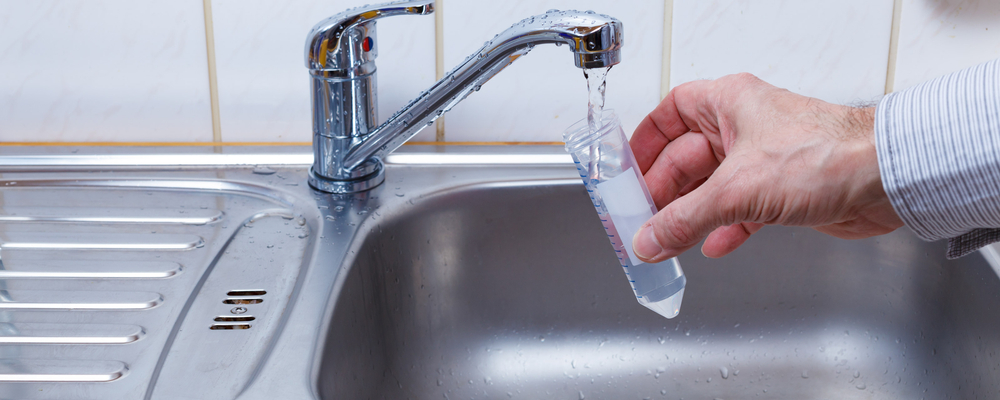
Why test drinking water?
The importance of testing drinking water can’t be overstated – it helps us ensure that our water is safe from harmful contaminants, whether that’s mineral, bacterial or some other impurity. Beyond the health concerns, testing your water also ensures it tastes right, smells fresh and looks clear.
This process goes beyond just drinking too, making sure the water we use for cooking, cleaning and bathing is just as pure.
What are the signs you need a water test?
If you live in an area where water comes from a well, we’d recommend booking in a water test. But there’s more to look out for. Notice rust stains in sinks or on laundry? It might be a water issue. If your tap water gives off a peculiar rotten-egg odour, leaves your dishes spotty, or causes skin irritation and dry hair after showers, these are all potential red flags.
Additionally, soap scum or mineral build ups on fixtures, as well as unexpected changes in the taste, odour, or appearance of your water, warrant a test. And of course, if there’s been a local environmental disaster, such as a fuel spillage, or reported issues with the local water supply, don’t hesitate to get a test booked in.
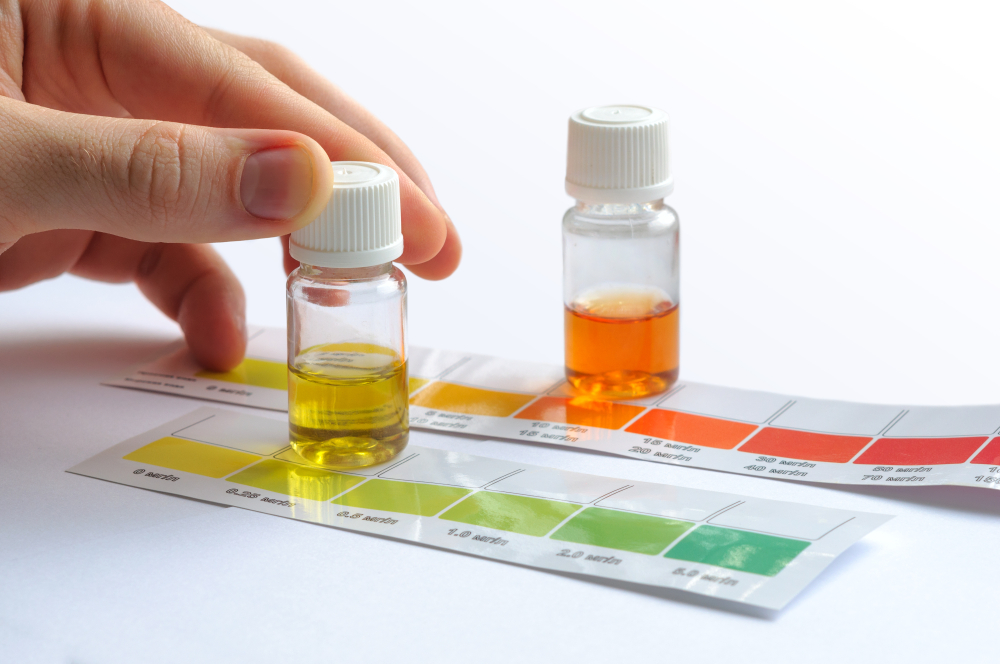
How often should I test my water?
For people using a private water source, it’s good to get your water tested at least once a year. If you’re using a shallow well or surface water sources, you should consider testing these more frequently as they can be more likely to become contaminated.
What can contaminate tap water?
Lead is one of the most common contaminants in water and it happens when lead water service lines corrode. On the other hand, dangerous bacteria like Legionella can sometimes contaminate our tap water if the appropriate systems aren’t properly maintained.
Consuming or coming into contact with water containing these contaminants can pose significant health risks, including respiratory illnesses, gastrointestinal distress, and other health complications.
Does everyone need water testing?
Whether we are using private or mains water supplies, we need to understand the potential risks so that we can keep ourselves and others safe.
Mains water supply
The majority of urban and suburban residents receive their water from the mains water supply. This water comes from reservoirs, rivers, or lakes, and is channelled through a vast distribution system. Before reaching our taps, this water undergoes rigorous treatment to remove contaminants and ensure its purity.
However, like any large-scale system, vulnerabilities can exist. The mains water supply can sometimes contain contaminants, including trace metals and unwanted by-products from the treatment processes. While often in small amounts, over time, these contaminants can pose health risks. That’s why staying informed and occasionally testing your water, even if it’s from a mains supply, can be a good idea and give you some extra peace of mind.
Private water supply
If you are using a private water supply, it’s likely that your taps are fed from wells or springs. Without the advance testing process used for mains water supplies, private sources have a higher chance of being contaminated. That’s why regular water testing – at least once a year – isn’t just advisable, it’s an integral part of making sure your water supply is safe.
Where can I get my water tested?
We’ve been in the water hygiene business for decades, so we understand that navigating the world of water testing can be confusing. But don’t worry – that’s why we’re here to help.
Whether it’s your drinking water, a swimming pool or specific Legionella testing that you need, our teams of experts are on hand to make sure every sip is safe.
Got some questions? No problem – just get in touch with our team of experts today. They can give you all the guidance and advice you need and get you booked in for one of our water testing services.
"*" indicates required fields
